<< Home



The author is invited to one of the biggest mystery books festival of France: Quai du Polar
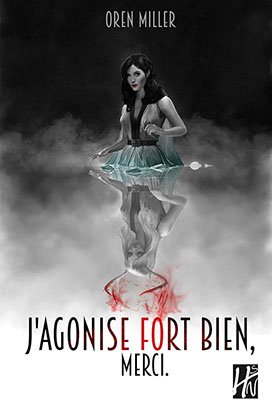 Sainte-Marie-La-Grise.
Sainte-Marie-La-Grise.
Its exceptional location close to the Emerald Coast targets it as the ultimate place to go on holidays. Breathtaking landscapes, the mysterious folklore of Brittany and dead we helped to pass will amaze the most adventurous among you.
Enjoy the warn welcome you will receive.
However, to fully appreciate your stay, please follow these three rules:
1 – Always listen to those you cannot see.
2 – Watch out for dark creatures who knock before entering.
3 – Be quiet. Really quiet.
Mystery
Adventures
Humor
Strong emotions Folklore
Unlikely duo
Release: March 2016
Format: 14x21cm
Paperbacks publishers interest:
A duo reminiscent of other mythical ones like Poirot & Hastings and Holmes & Watson
A growing community of followers
Series



Trailer
Leading readers to 1950's Brittany, Oren Miller depicts an acid portrait of a small town, haunted by figures as magical as monstrous like the Vouivres, the Dame Blanche and other Midnight Washerwomen.
We follow the formidable adventures of an unlikely duo, composed
by a colourful notary and his errand boy, who have to investigate the death of one of their clients and find themselves in an awful case.

Author's introduction
Oren speaking about the book





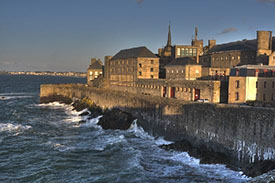

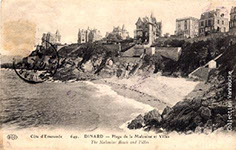
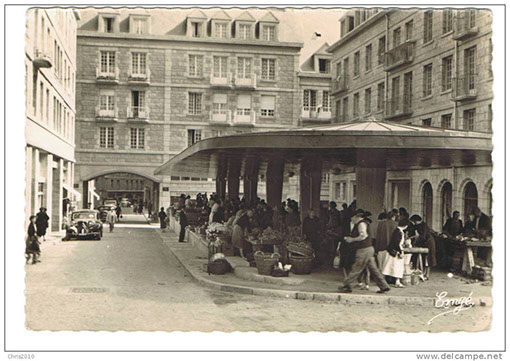

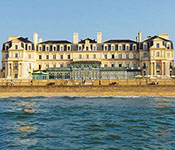


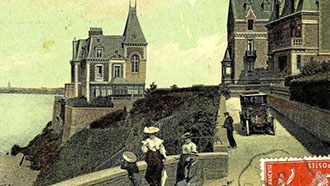


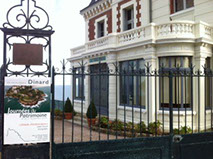
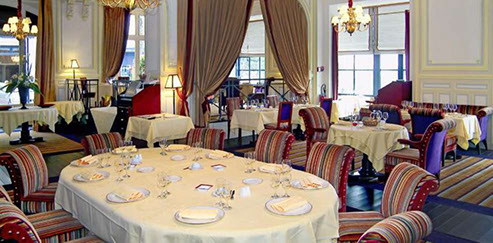



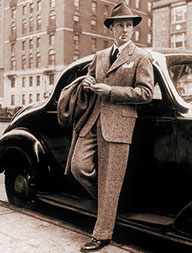
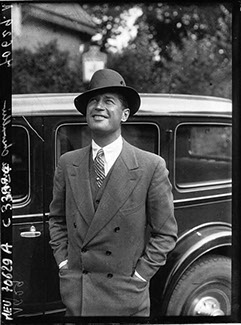


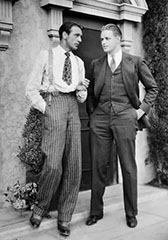

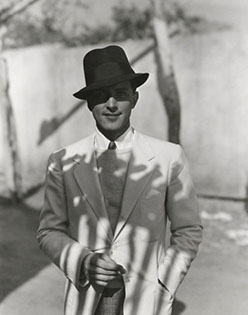






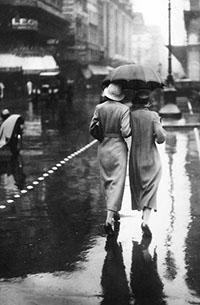



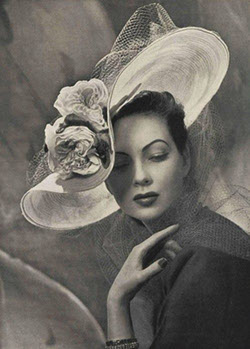










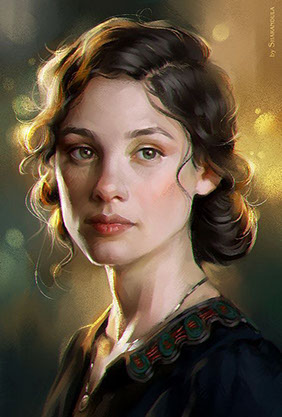







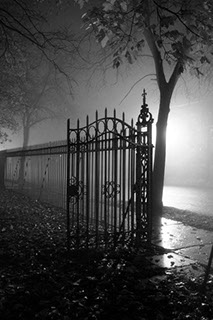
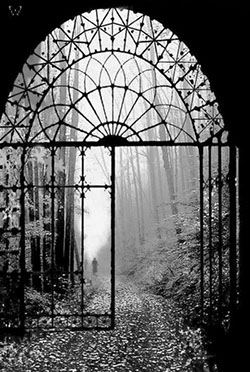
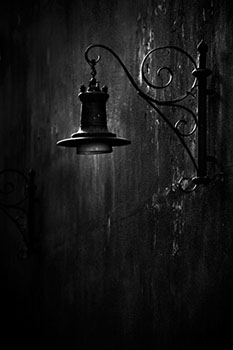








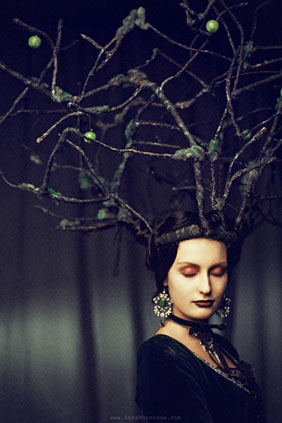

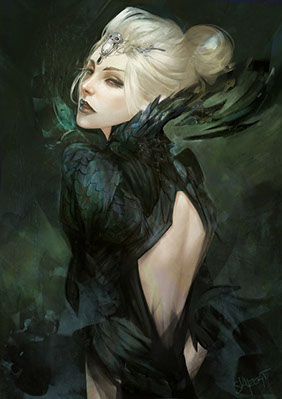


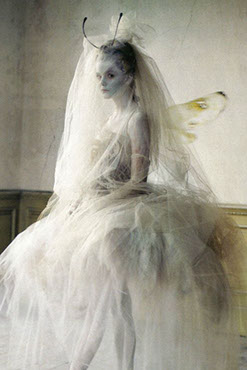


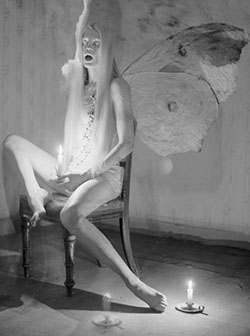
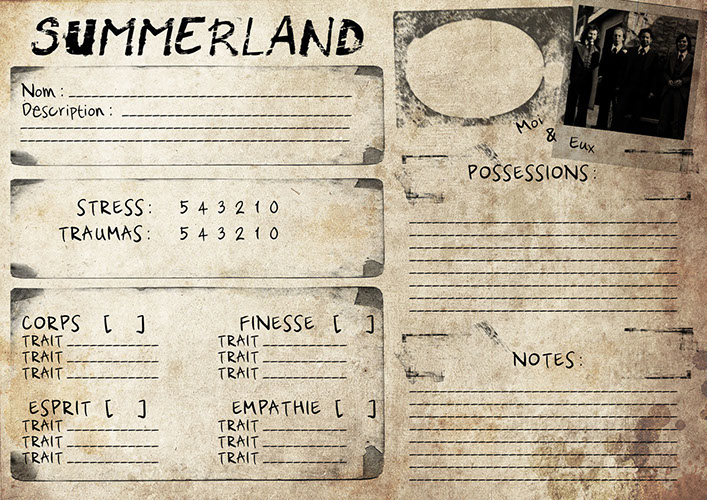























 NAME: Isabeau Le Du
NAME: Isabeau Le Du
AGE: 24
NATIONALITY: French
PLACE OF BIRTH: Unknown, abandoned in Saint-Malo
MARITAL STATUS: Single
OCCUPATION: Errand boy for an attorney in Rennes
Dreamer, enthusiast, ambitious. He compensates the trauma of his stay in an orphanage that prevented him to receive a good enough education by an unquenchable thirst for knowledge and adventure.
His dark thick hair, a bit long over the ears, would have needed a good trim and styling to be as fashionable as Isabeau had seen in magazines. He cheated and flattened it back under his newsboy cap. Naturally beardless, he looked like he was freshly shaved without actually having to do it. His white smooth skin, highlighted by a mole under the right eye and a dimple on the chin – which was too feminine for his taste – made him a real catch for the eye. For the occasion, he was dressed in his best clothes: light brown pleated pants and a white-as-possible shirt partly covered by a sleeveless ribbed sweater, which hid pretty suspenders. The overall impression was good if one didn’t spend much time on the details that gave away the wear of his shoes and the repeated patching-up of his clothes.
"
"
 NAME: Évariste Fauconnier
NAME: Évariste Fauconnier
AGE: 37
NATIONALITY: French
PLACE OF BIRTH: Congo
MARITAL STATUS: Widower
OCCUPATION: Notary
Absolute cynical, provocative, brilliant and condescending. He has a weakness for mysticism he however doesn’t admit.
Isabeau found himself nose to nose with a well lived thirty-years-old man, maybe even too well, as tall as him and with an elegance quite far from the idea of simplicity and discretion. Worst of all, he had swapped the usual top hat for a chocolate brown fedora.
— Mister Fauconnier? tried Isabeau with all the confidence he could summon, as it happened very little, Mister Evariste Fauconnier?
— That’s right, young man, answered the notary with a charming voice before taking the newspaper from Isabeau’s hands, so you are the favour my old friend Jacques owes me.
Isabeau nodded although he thought that actually speak his answer might have been more professional.
— What’s your name?
To introduce himself. Why didn’t he think about that one instead of being disappointed about the lack of top hat?
— Henri Le Du, he hastened to answer concerned with efficiency. The notary slightly moved his head. Everything on his face, right and symmetrical, revealed a willing and assertive character. Regarding his bright light eyes, the powerful spark that shone at each blink didn’t hide anything of his alertness.
"
"



















SPOILER ALERT - The following text reveals the entire plot and murderer.
Evariste Fauconnier motioned the waiter to bring tea to the table he was sit at, with his clerk, Isabeau Le Du, and his old friend Agatha Mallowan.
― It was, I can assure you, the most sensitive case I’ve ever had, declared Evariste, playing with a sugar cube absent-mindedly.
― Precisely, said Miss Mallowan, how were you involved in this storm that devastated all of Brittany? As a good notary, weren’t you supposed to just take care of your friend Catherine Lozac’mher’s estate?
― I should have. However, you see, when she felt she was drawing her last breath, she spoke these strange words: “isn’t it a good move, Sir?”
Miss Mallowan reacted to the quote. The intense light that shone in her eyes was proof of the growing interest she felt toward the conversation.
― This is curious, indeed.
― Nobody thought it was important, because nobody understood what she meant. Yet, it couldn’t be clearer: Catherine was poisoned and she directed the message to myself.
― What do you mean?
― We shared the same enthusiasm for the Affair of the Poisons that marked the reign of King Louis XIV.
― Oh, yes, I remember your impressive collection of books on the subject and how much it cost you, smiled the old lady with a touch of British mannerism.
― This collection revealed itself to be quite useful, as I was able to find the exact words Catherine uttered, which were those of Marquise de Brinvilliers’ executioner. She was the most famous poisoner of the period.
― So, you understood she was poisoned because she left you this message. Isn’t it a bit far-fetched?
― He always does that, tried shyly Isabeau with fatalism.
― I grant you this is a bit quick, answered Evariste with good humour, but the fact is that a series of details came to strengthen my beliefs. First of all, the concern of her children, Dorian and Agathe. They asserted that a short time before her death, their mother felt watched and thus was terribly worried. Then, there was the letter Catherine sent me a few weeks before but which I received only after her passing. She mentioned a deep guilt she felt since some years of which she wanted to alleviate the weight. I was convinced Catherine knew something, or had done something, she was profoundly ashamed of. This thing could have been bad enough to involve someone else who could have wanted to silence her. Because Catherine was extremely rich and only mingled in the most influential circles of the country.
― I think I might have seen this lady once or twice during some charity events organised by the committee of Sainte-Marie-La-Grise. It was where she came from, I believe.
― Exactly. Interesting for you to talk about the town committee, because soon my investigations…
Isabeau lightly cleared his throat.
― Our investigations, corrected Evariste with a smile, soon led us towards the town committee and its distinguished members. This society was a hundred years old, and was omnipresent in the social and cultural life of the country. Catherine only had contempt for it. Handling colossal amounts of subventions, it had the power to change the weather for the cities nearby.
― I remember well its president, Victor Duval, he had an imposing personality. A king in his kingdom.
― And Sainte-Marie-La-Grise is quite a strange kingdom, believe me. It could come directly from a dark tale full of mysteries and superstitions.
― Are you talking about these deeply rooted beliefs the inhabitants have about the invisible little folk?
Isabeau couldn’t help the shiver in his back.
― Indeed, I do. I quickly discovered a singular atmosphere where the day-to-day life of these people was a blend between rationality and rituals linked to fairies, Lavandières and White Ladies. The deaths of the owners of the best-known herbalist shop in the area that happened shortly after Catherine death had tensed everyone. Even the mayor of Sainte-Marie and the rector of Dinard parish, Father Joachim, who both are well respected figures, don’t succeed to settle the minds.
― Well, so Catherine was indeed murdered. When suddenly you find the mutilated body of Victor Duval.
― I had to deal with two murders. If Catherine’s was arguable, the discovery of the gruesome staging of this poor Duval’s body never allowed any doubts. I had to find the link between both.
― Thus, we began to look for what could connect Catherine Lozac’mher and Victor Duval, interrupted a daring Isabeau.
― We decided to follow the money, resumed Evariste, because this is what Catherine and Victor had in common. Substantial funds flowed between the town committee and Sainte-Marie. The society gave a lot to institutions and to events, from Sainte-Marie to Saint-Malo. But Catherine was a free spirit and acted on the field, whereas Duval used charity to speculate in politics. I had the idea that Catherine’s guilt could have been regarding financial wrongdoings brought to a big scale she was aware of but didn’t report until she changed her mind, soon before her death. The killer, someone acting in the shadow of powerful people, would have wanted to clean his tracks.
― However, this scenario is far from the conclusion and the Aigrettes Orphanage, pointed out Miss Mallowan. How did you linked the committee and the orphanage, where all those nightmares happened?
― Easily, because someone told me, revelled Evariste. Interrogating the persons closed to Catherine I realised that the breaking point between her and the committee was the management of the biggest orphanage of the country, the Aigrettes. Something happened there that led Catherine to leave the board she was a member of and ask for an investigation about its running.
― This must have been serious, if she felt the need to turn against the institution that allowed her to adopt her two children, even as a single woman, noted the old woman sipping on her tea.
― Precisely.
― I am curious, how did the “special class” of the Aigrettes came to you?
― You know, most people wanted to talk, declared Evariste, even when they lie, they talk. When they do, there is always something that slip their minds. A hopeless strand of spontaneity. Isabeau and I finally learn that the orphanage did not only welcomed abandoned children. The director, the brother of Sainte-Marie mayor, decided to create a special class supposed to take care of the disabled children the wealthy families of the area didn’t know how to hide anymore. Trained teams and specialised learning, everything was set in place to improve these poor children condition. In fact, this special class was an execution room destined to apply a tradition that goes back to the 11th century.
― Changelings, carried on Isabeau shivering again.
― Sadly, we also know this legend in England, added Miss Mallowan.
― The city, the country even, exorcised its devils and wounds through this practice. The legend tells us the invisible little folk, condemned by God to never be seen for the sin of pride, used to substitute their offspring with humans’ children. Christening them, human families allowed them to be part of God’s kingdom. With this trick, they accessed Paradise in being seen again by God. Yet, in order to prevent it from happening and save the real babies, the church used to inflict the worst abuses to the suspected changelings. Thus, the fairies, alarmed by their children cries, were to break down and give back the human child. The more the baby cried, the more it confirmed the efficiency of the treatment, the more the fairies were to come back. However, if the child was to die, it was a relief for the world against these unnatural beings. Of course, it was never the beautiful children, with blond locks and big intelligent eyes who were suspected of being a changeling. These ones were perfect, so they were obviously human. Changelings always were the disabled, the misshaped, the broken ones.
Evariste paused. His audience remained silent for a minute, in reverence. He went on:
― While we kept digging, not without danger I can assure you, Isabeau and I discovered that since around forty years, Sainte-Marie hold the record for the highest number of deaths in infancy. Most of them were disabled and received hastened funerals. In a more or less continuous way, the city kept sorting the children, believing to ward off ill fate and bad luck.
― This is from there you understood it was about a revenge, went along Agatha Mallowan.
― The hideously dramatic death of Victor Duval, then Father Joachim, the doctor’s suicide and the forged accident of the Ferrands, all of them linked to the premature death of a disabled child, gave me the same message: “look at what horrible things I do to horrible people”. The snakes in the father’s throat, Duval crucified, the spine out in the air, jabbed with nails and the Ferrands drill in the head with a poker… The killer avenged the children’s deaths of these shameful class, applying to the surviving parents the same stigma than their disability.
― How could you be so certain? These children were all dead and the parents must not have especially told you the tragedy they went through.
― We had to desecrate the graves to check the pathologies on the remains, announced Isabeau, a bit traumatised.
― Pardon me?
― An investigation sometimes requires to be daring, eluded Evariste. Let’s not dwell on the details. At this point remained two questions. Two questions that, if I was to find the right answer, would give me the solution. First, what was the link between the abominable deaths of the parents of the disabled children and Catherine’s quick poisoning, whose children are perfect in all respect. Then, which person still alive had every reason to become this vengeful, as you said it yourself, every victim was dead.
Suddenly silent, Evariste waited a bit for a more dramatic touch.
― What was the answer to the questions? asked the Miss Mallowan, unmoved by Evarist’s attemps.
― Well, if at first there wasn’t any obvious connections between Catherine’s murder and the others, this is purely because there were two murderers, acting separately for radically different reasons. Secondly, there actually were disabled children who survived the Aigrettes. Two words always came back: invisible and perfect. The little folk was invisible and everything was to be perfect in Sainte-Marie, or at least look like it. Some disabilities are invisible and everything seems perfect.
― Dorian and Agathe Lozac’mher, predicted the old lady in a morbid awe.
― Two orphans miraculously escaped this hell and were smart enough to be adopted by an independent woman who wanted to be a mother.
― It must have been such a heartbreak for you to come to the conclusion. You were a dear friend to the family.
― And this is how I almost missed the answer. If I hadn’t accidentally met the mailman, I would never have understood that Dorian lied about his comings and goings. He had a good reason for he was busy killing father Joachim. A first lie often hides other ones, so I examined everything through a different point of view. However, this is a weak comfort. The outcome of this case, with Agathe’s suicide and Dorian’s poisoning in prison, has scarred me for ever.
― And Catherine? What about her death?
― The worst in this story is that my friend’s murder was only motivated by money. The mayor needed funds to re-establish the Aigrettes in the loving memory of his brother. He counted on some documents forgery to bank money from the estate. Terribly classic, viciously common.
― Sainte-Marie will take some time to recover from this.
― The whole country, you mean. All this wonderful town dignitaries, these so-called good people, were aware of these practices. And this is without talking about the overwhelming superstitious hysteria you feel everywhere. For a time, Isabeau thought that the appearances and preternatural phenomenon he and Agathe faced were real. If I hadn’t discovered that the whole town ingested mixtures with belladonna, to feed its superstitions, Isabeau could have lost his life and I would never have considered to investigate the human track.
― In the grand scheme of things, there are no worst monsters than the humans hidden behind. This is what I tell in each one of my books, concluded with fatalism miss Mallowan.

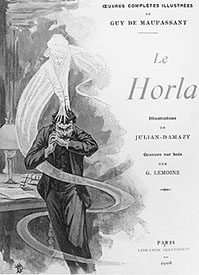
.jpg?crc=4070711473)
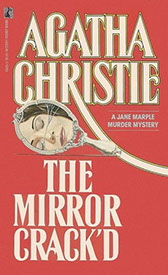
The Emerald Coast and its folklore
The contrast stroke at heart. Above the church, the cloudy sky was torn in some parts and the sunlight, hold captive above the mass, broke through these celestial wounds in sharpened arrows, shot straight on the roofs. Turned toward the ground, the young girl watched the parish yard in a sad benevolence. The delicate limbs of her pristine body, deeply impaled on the bell tower’s cross, swayed with every burst of wind. Blood was leaking gracefully along the abdomen, pierced through and through, and shone on the gray tiles like long strand of auburn hair. At the top of the stone façade, sprinkled with ivy, the great stained glass added a new colour to its palette when the fluid reached its surface.
Depending on the orientation of the tears in the sky, light sprang to strike the white body, and made it shimmer. The victim’s pale brow was encased in a crown of interlaced twigs of which some of the tips punctured the skin, smudging her face with carmine furrows. Through the strands of her light hair, you could see two frozen glassy beads ruling each orbital cavity as black as soot.
And they were aiming at Evariste.
"
"































The book
Gallery
Characters
Summary
References
Atmosphere
I Lay Dying Greatly, Thank You

